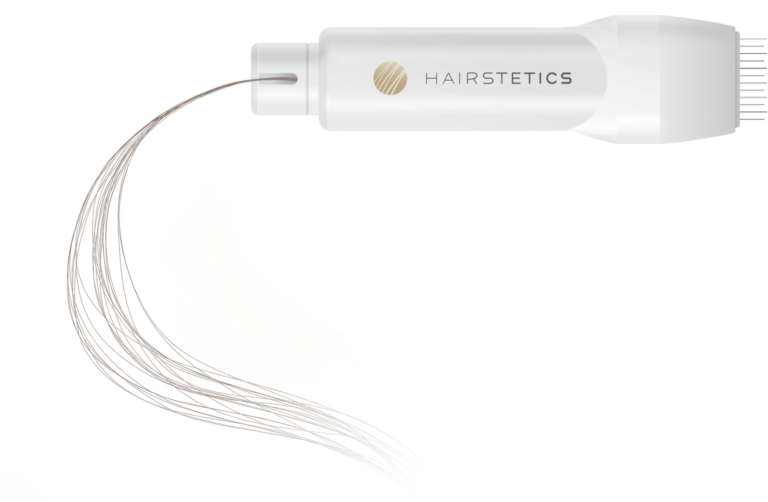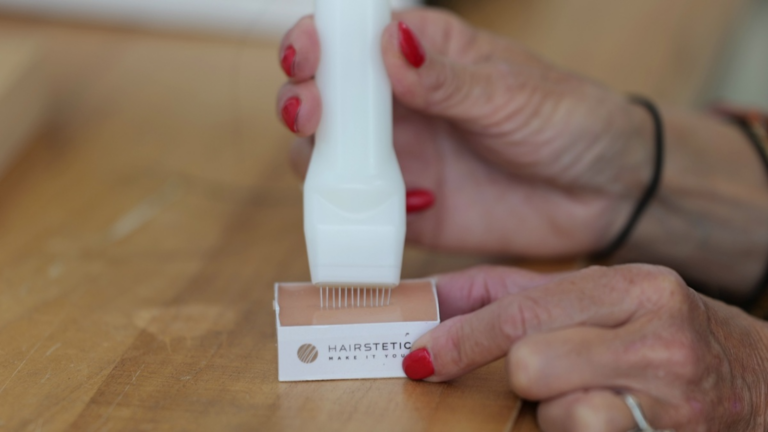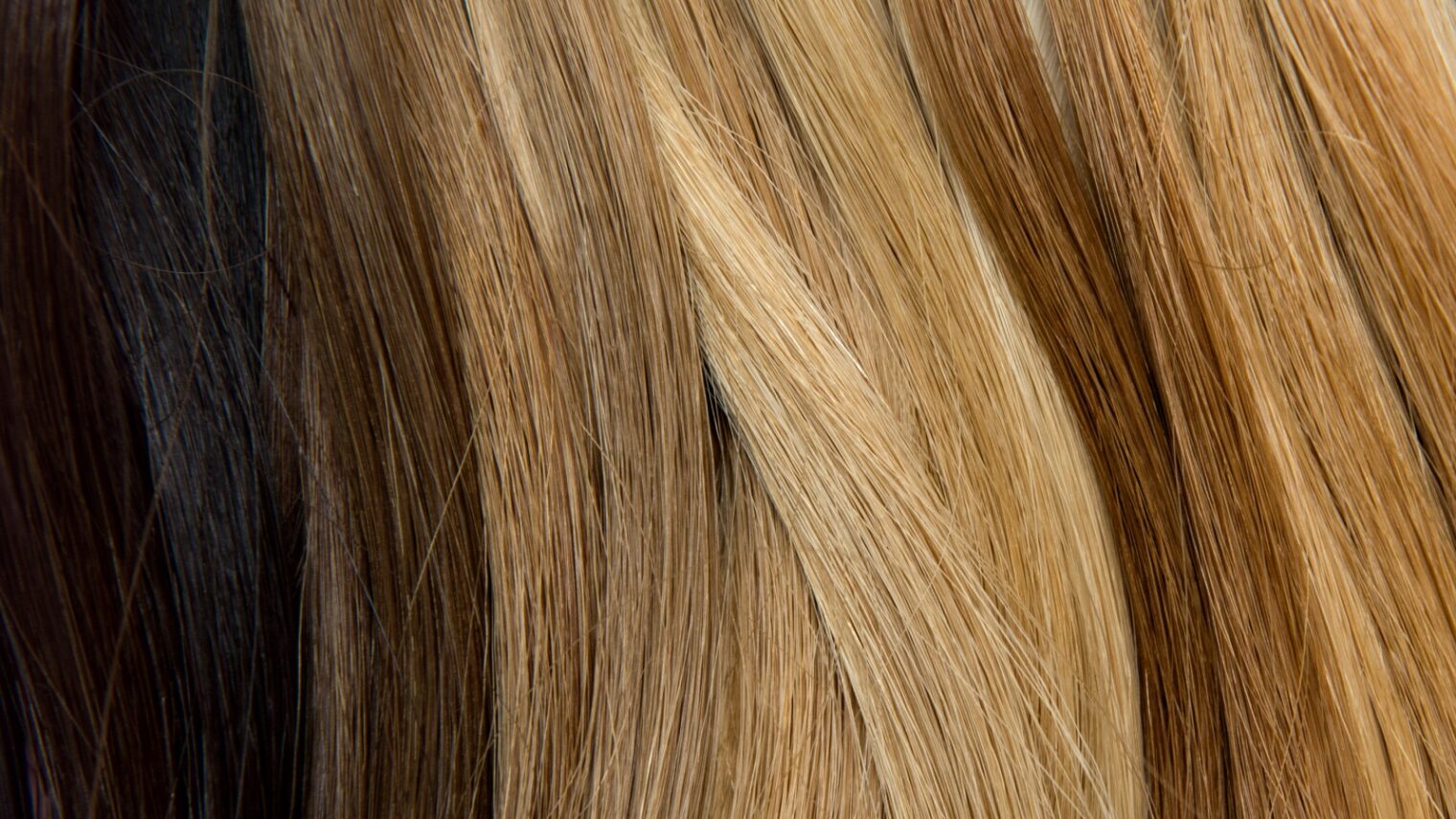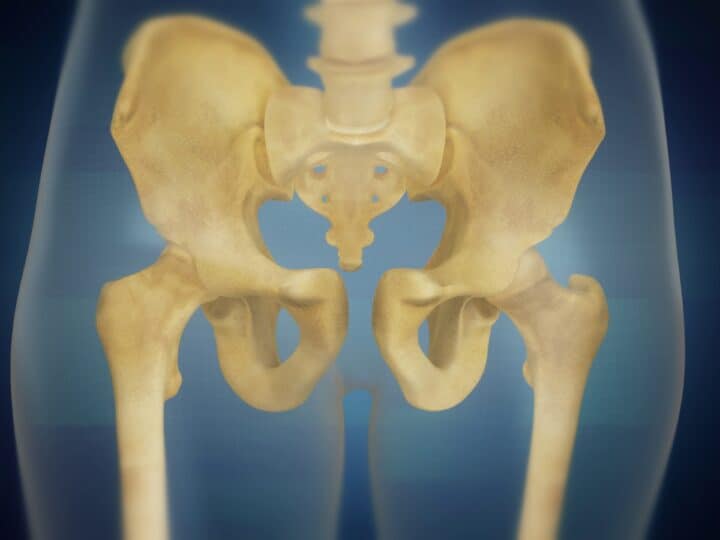When serial medical device inventor Dvir Keren became interested in developing a minimally invasive way to fill in bald areas caused by androgenetic alopecia — common in both men and women — he did not realize he’d be establishing a femtech company.
But that’s what Hairstetics became, for the simple reason that 85 percent of women with androgenetic alopecia are not benefiting from natural hair transplantation procedures for what is called “male-pattern baldness” in men.
“At the beginning, he was thinking about males,” says Hairstetics CEO Oren Ne’eman. “But when recruitment for clinical studies started, a lot of women came.”
Keren learned that androgenetic alopecia in males and females is different in how it presents and how the hair loss can be compensated.
In men, the hairline recedes and the hair follicles are thick enough at the back of the head for successful transplantation at the hairline.
In women, bald areas are dispersed across the scalp and the hair follicles are thinner. In addition, natural hair transplantation uses short strands, which take months or years to grow to the length many women prefer.
Hairstetics’ one-hour procedure uses a pushbutton device pre-loaded with cartridges holding a dozen or two dozen 40-centimeter (nearly 16-inch) synthetic strands mechanically connected to a miniature anchor for fixation to the scalp under local anesthesia.
It’s a shorter and less invasive procedure than natural hair transplantation. “Natural hair transplantation is basically skin transplantation so it’s more invasive,” Ne’eman explains.
Available in seven colors, the strands are made of surgical nylon commonly used in sutures. The anchor is made of nitinol, a biocompatible alloy of nickel and titanium used in medical implants such as cardiological stents.

There’s no post-procedure downtime, and after three days the client can shampoo and style the synthetic hair as she likes. After two weeks, she can even dye it.
Available in Israel, Europe
Hairstetics won CE approval in Europe in 2019 and is currently available in Israel, France, Belgium and Switzerland. Clients can expect to pay between 5,000 and 6,000 euros.
Approximately 500 women have had the hair implantation procedure, which usually involves having 500 to 600 implants anchored under the scalp.
“Hairstetics will become a must on the hair restoration market because of its safety, high technological quality, and efficacy of results,” said Dr. Ghislaine Beilin, an aesthetic medicine practitioner in Paris.

One client in Israel said she turned to Hairstetics after unsuccessfully trying special vitamins and shampoos.
“I like to see results as fast as possible,” she said, adding that she felt secure about Hairstetics’ safety as explained by her doctor, dermatologist Lehavit Akerman.
Akerman acknowledged that few solutions previously existed for the many women with androgenetic alopecia and the condition causes a lot of stress.
She said her Hairstetics clients “are very satisfied with the results and feel more self-confident.”

Ne’eman emphasizes that the implant isn’t a cure for androgenetic alopecia. The condition will continue causing natural hair loss.
“In addition, there is shedding of Hairstetics hair of about 20 percent a year, so we recommend every 12 to 24 months to do a reinforcement procedure,” he says. “Just like fillers for wrinkles, there is a natural process that we cannot stop.”
Huge unmet need
Based in Or Yehuda, Hairstetics was founded in 2010 by Keren with fellow Technion graduate Boaz Shenhav.
“He envisioned bringing something from the surgical space to medical aesthetics, like wrinkle fillers for the hair world,” says Ne’eman. “It’s a huge unmet need.”
Most of the succeeding decade was dedicated to developing the product and doing clinical studies. The European regulatory approval came just before Covid, which slowed down commercialization.
Ne’eman says the company’s focus is on Europe for now.
Getting FDA clearance in the United States would be more difficult not only because it costs more and takes longer, but mainly because synthetic hair implants were banned by the FDA in the 1980s due to inferior materials and techniques at that time.
“We are using very biocompatible materials known in medicine, but we’d probably have to do additional studies to get FDA approval. So we’ll likely pursue it, but not in the near future,” Ne’eman tells ISRAEL21c.
Hairstetics has 12 employees plus outside consultants. Its major shareholder is Peregrine Ventures, which specializes in medical devices. It has also enjoyed support from private Swiss investors since its founding.
For more information, click here.
















